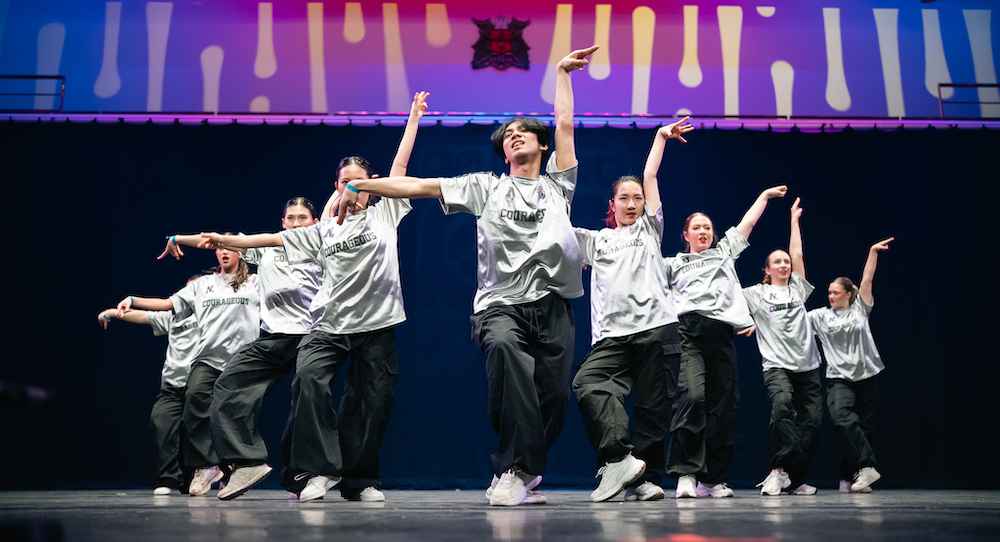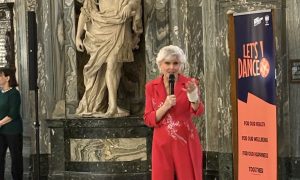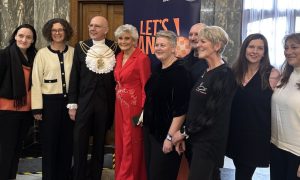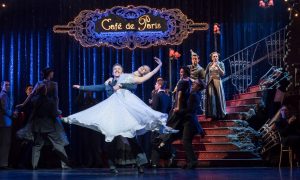While many formal university dance programs across the UK have been facing uncertainty and the worry of funding cuts in recent times, a university dance subculture is thriving on campus. At the heart of this scene is Go Hard or Go Home, a university dance competition that’s become one of the biggest and most inclusive events of its kind in the UK.
We spoke with founder Lekan Adebanjo, whose own dance frustrations became a passion project that has grown into a national phenomenon.
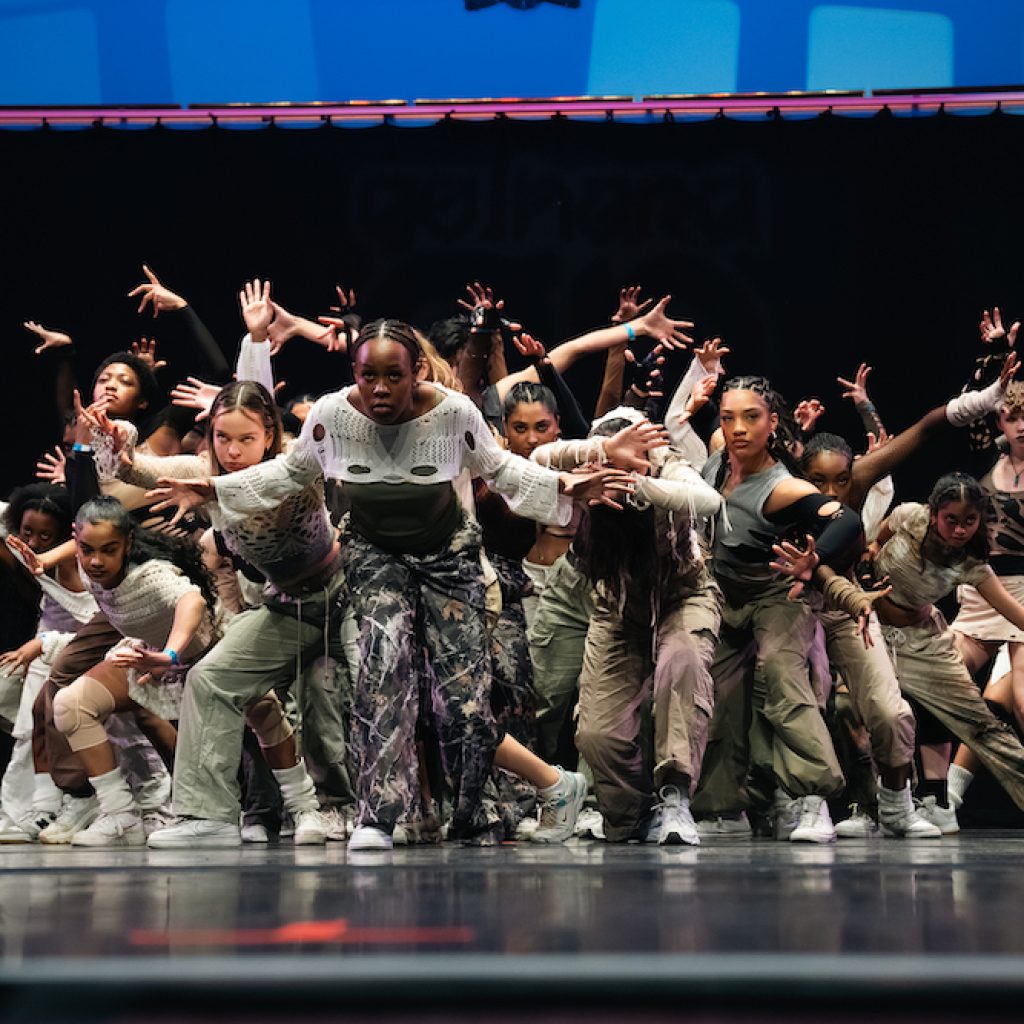
Adebanjo didn’t grow up with formal dance training. “I just liked dancing,” he recalls. While studying IT at Nottingham Trent University, he and a group of friends formed the Funky Fresh Collective. Frustrated by an inability to secure regular rehearsal space, the group became an official university society, primarily so they could lock in regular space and support. Soon they were travelling to compete in dance competitions, but not finding one they felt suited them, Adebanjo built his own.
“I wasn’t a big fan of the competitions that we went to, and I thought egotistically that I could do better,” he shares. “It actually started off as street and hip hop only and we had 1 Vs 1 battles. A few years in, it grew to a street teams competition.” He admits those earlier years were hard work, but he loved performing and competing so much with his society and saw a niche in the competition market to make his own. When he graduated, he planned to hand over the event to the Nottingham Trent University society, but when they declined due to cost, he ended up taking it on himself.
Fourteen years later, Adebanjo is still running it and Go Hard or Go Home is a huge event staple on the dance calendar. “I’ve been doing it alongside my day job and over the years, it’s just gotten bigger and bigger and bigger and bigger and bigger,” Adebanjo beams. Starting with just a handful of groups, the event now attracts 35-40 different university groups. “We are now in the Royal Concert Hall which is one of the largest venues in the city (Nottingham). It’s close to 1,500 attendees.” In 2025, the event sold out for the first time – with a waiting list of groups wanting to compete.
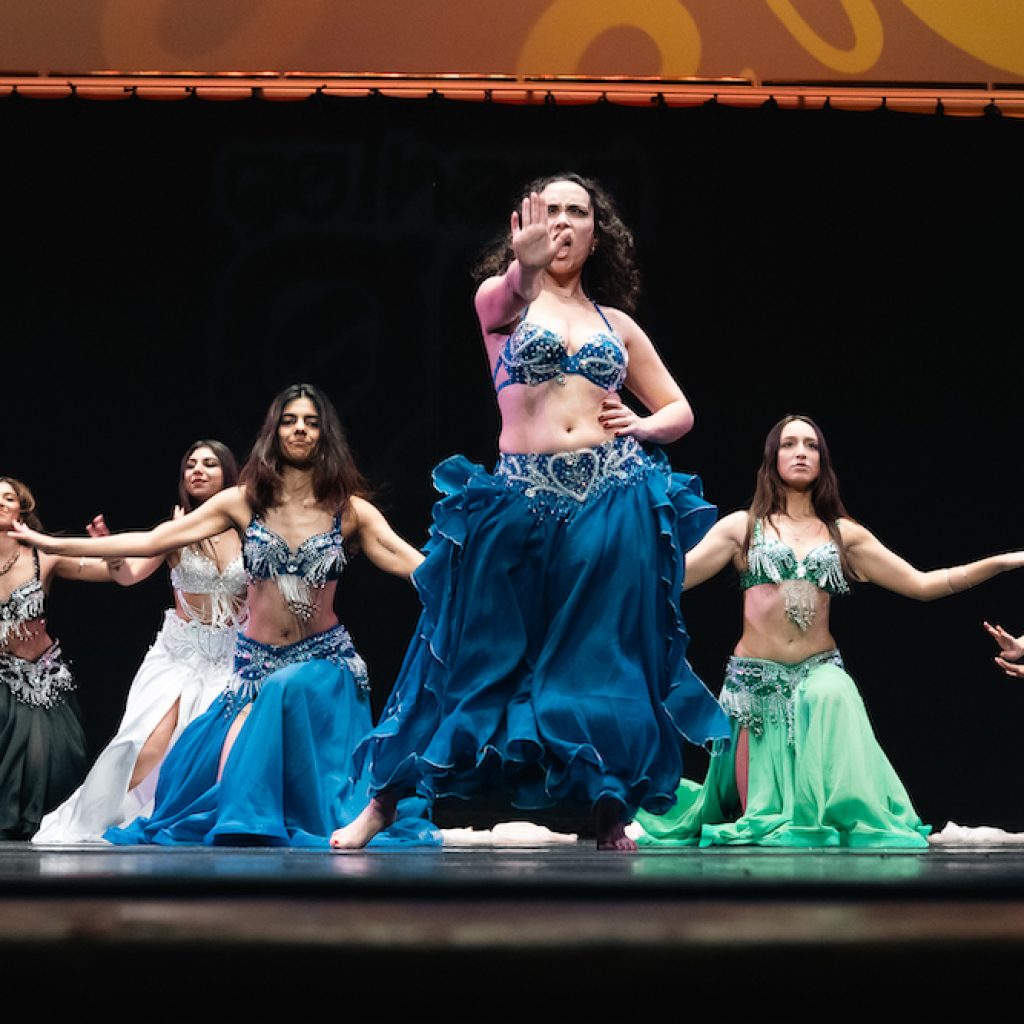
To meet that demand, the competition will now expand to two days next March. “It’s very likely that this year (2026) will make us the biggest university competition in the UK,” Adebanjo states. With over 160 performances in a single day this year, Adebanjo admits the competition is a logistical nightmare and achievement. “The feedback that we get is that we’re so smooth and organised. But it’s because we’ve had to be. I’ve done it for so long, I’ve already done everything wrong,” he laughs.
What started as a street dance competition has grown into something much broader. “Lots of societies do multiple styles. They don’t just do street or hip hop,” Adebanjo shares. He recognised that if they wanted to be more inclusive and grow the event, they had to do more. “We opened it up to ballet, jazz, contemporary, wildcard, etc at first…but then I realised that actually there’s a lot more dance in universities. There are people Irish dancing, Bhangra, K Pop, cultural dances.” And so, the competition expanded over the years to meet the needs of the community. There are now 11 recognised categories, and Adebanjo is open to more should they have enough interest in any one style.
To reflect that range fairly, the judging team has also evolved. “We now have a team of 12 judges who are specialists in multiple styles.” Rather than giving numerical scores, the judges use a ranking system. “This cuts out the highs and lows of scoring and makes it a much fairer system.” Feedback is also given to every competing group.

Each genre features three levels: beginner, intermediate and advanced. Adebanjo explains that some of the dancers in those advanced levels are people who didn’t get into university dance courses and are just happy to be able to continue dancing while studying something else. Many are dancers who have been training since young children and are thrilled to be able to continue their passion at University, still having the opportunity to both perform and compete. And then there are those, he says, who are absolute beginners – people who found dance at university as a means to socialise and connect and try something new – much like himself.
All are welcome at Go Home or Go Hard. But as the name suggests, it’s still a fierce competition. One that Adebanjo tries to keep supportive and social. In the early years, they used to host a dance party after the event for groups to come together and connect and have fun. As the event grew, it became more difficult to fit it in as the day got longer and longer. But with the transition to a two-day event, Adebanjo says he’s excited to see that after-party return on Saturday night in 2026.
One of the most unique and accessible things about Go Hard or Go Home is that entrants pay per person and only once. It’s something Adebanjo is passionate about. “I don’t do this for money. It’s my passion, and I guess when I go to an event, I just want to pay once and have everything included.” Dancers can compete in multiple genres for a single entry fee and the photography, videography and cost to perform in a professional theatre setting are all part of the experience for Adebanjo. “I’ve created it as my perfect competition,” he chuckles. “It’s very flexible. I guess that’s one of the things that has helped us grow and set us apart.”
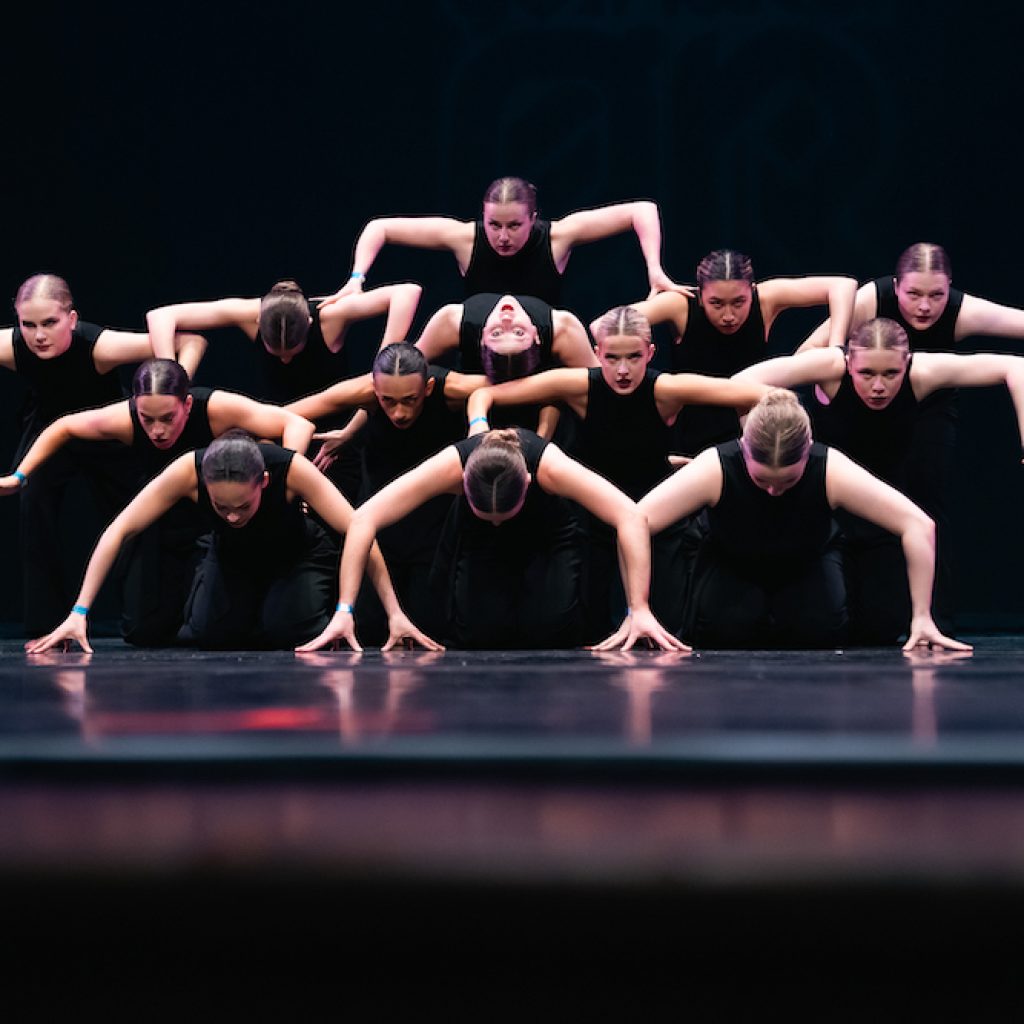
With the venue nearing capacity and groups encouraged to watch and support one another, Adebanjo realised this year that they’ve created an enviable problem – too many spectators. For 2026, he plans to live-stream (again for free) so that family and friends can still watch and support competitors.
To hear that there is such a thriving competitive dance scene across the university landscape, that does not rely or depend on enrolment in a dwindling university dance program pathway, is heartening. As this event continues to grow, Adebanjo is helping to ensure that dancers at university still have a platform to perform and compete.
The next Go Hard or Go Home competition is 7th and 8th March 2026 at Nottingham Royal Concert Hall. Entries are open now and close 1 December. Head to www.ghghuk.com for more information.
“I love trying to make the best competition on the planet,” Adebanjo says. “We have a tagline and it’s like ‘the ultimate dance competition experience’, and that’s what I’m trying to create.”


